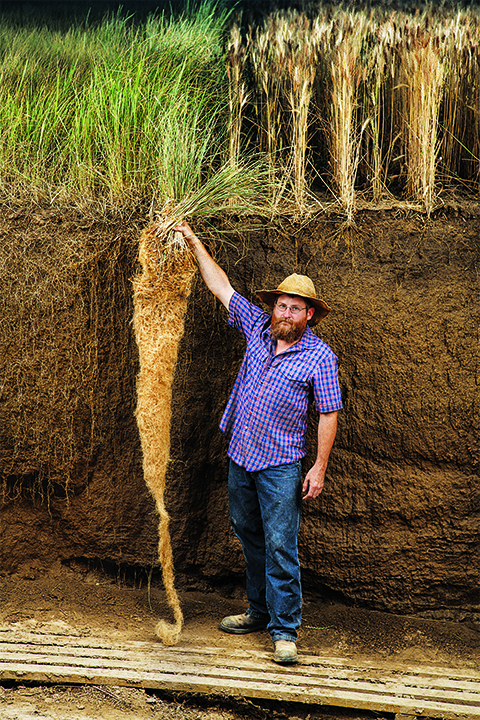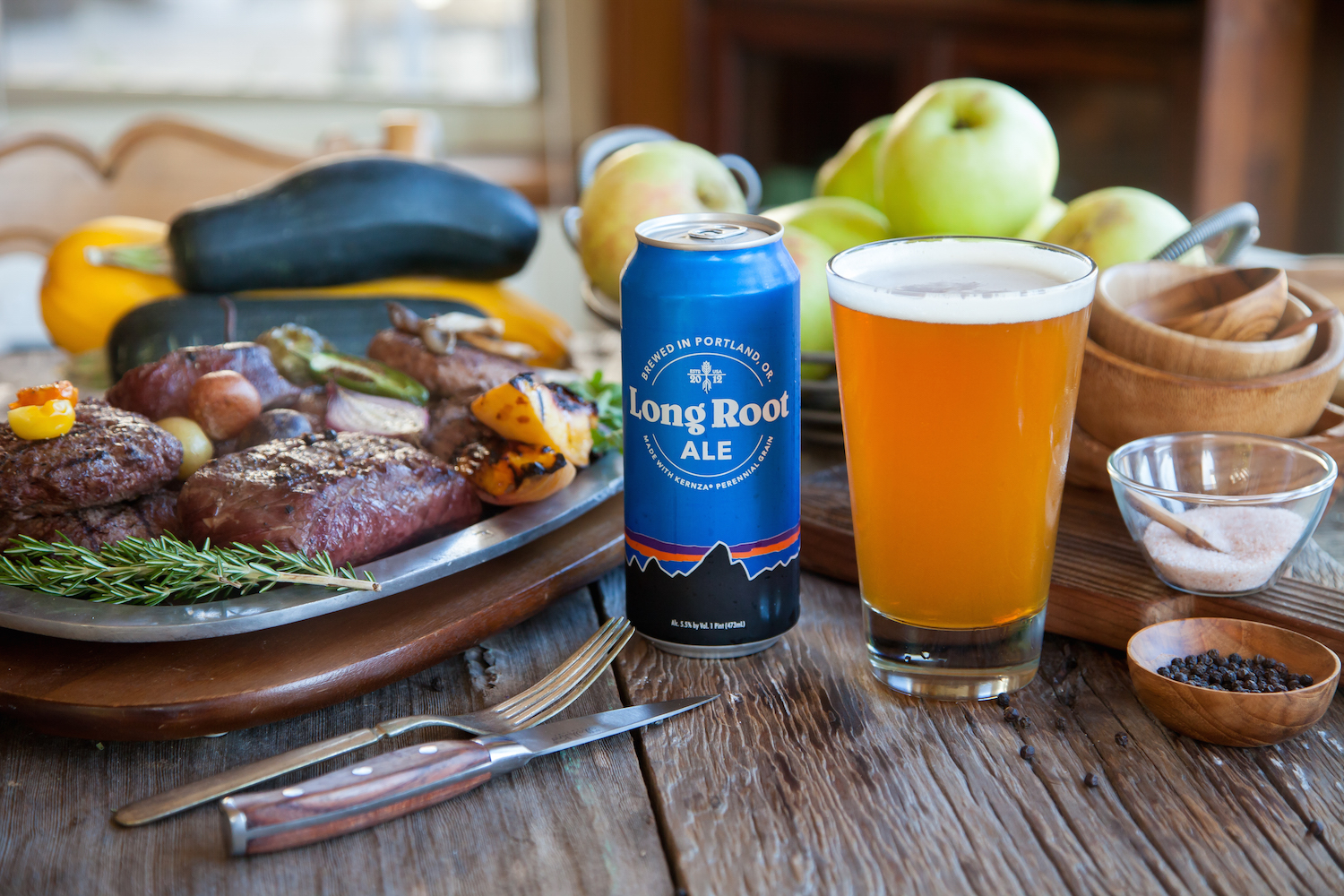Patagonia’s latest product isn’t a winter coat or pair of boots, but its first-ever line of beer.
Unlike standard brews, the new beer is the first to be made with Kernza, a breed of wheat that’s perennial, meaning it grows back season after season.
Long Root Ale launched on Oct 3, and is produced by Patagonia Provisions, the sustainable food offshoot of Patagonia, in partnership with the Kansas-based nonprofit The Land Institute, which developed the Kernza grain.
Kernza is still relatively new – researchers at The Land Institute began breeding it from a species of perennial wheat grass in 2003. Farmers are still experimenting with it, but have thus far found that Kernza crops require only half as much water as wheat due to their long roots. The plant also thrives without tilling, which helps prevent soil erosion (the wearing away of topsoil by wind and water after farming). And since Kernza crops don’t die after harvest, they can grow – and capture carbon – year-round, eliminating the need to start over every season.
Patagonia Provisions brewed its new beer at the Hopworks Urban Brewery in Portland, Oregon. 16-ounce cans are now available at Whole Foods stores in California, Oregon and Washington.

The company hopes that using Kernza in beer will help reduce climate change, since the crop lends itself to sustainable, regenerative agriculture practices, Birgit Cameron, sr. director of Patagonia Provisions' senior director, said in a statement.
Industrial agriculture currently consumes about 70% of the planet's accessible freshwater, and harvest wheat uses 1.9 million gallons of water annually. Wheat leaves land especially vulnerable to soil erosion, which causes vital plant nutrients to get washed away. Kernza, however, leads to much less soil erosion and water waste than other grains, and helps protect soil biodiversity as well.
Other breweries are also attempting to make more sustainable beers. Because the brewing process produces a great deal of waste - roughly 36 billion pounds of grains every year - Regrained, a startup based in San Francisco, it turning the used grain into granola bars. In 2013, Alaskan Brewing Co. installed a $1.8 million furnace that burns the company's used grain to make steam, which powers the majority of the brewery's operations.
Sierra Nevada Brewing Company has decreased its carbon footprint by using hydrogen fuel cells(a type of clean energy) on site, and New Belgium Brewing Company harvests methane from its own wastewater, which supplies 15% of its electricity needs.
Patagonia Provisions' other food products are also all environmentally friendly - they include responsibly harvested wild salmon,hot cereal made from organic buckwheat (which requires less water, fertilizer and pesticides to grow than normal wheat), and jerky that comes from free-roaming, grass-fed buffalo.
Since the hoppy Long Root Ale just launched, there aren't many reviews available yet, but one taste tester says on Twitter that it's "pretty decent." It may be pretty decent for the environment, too.

